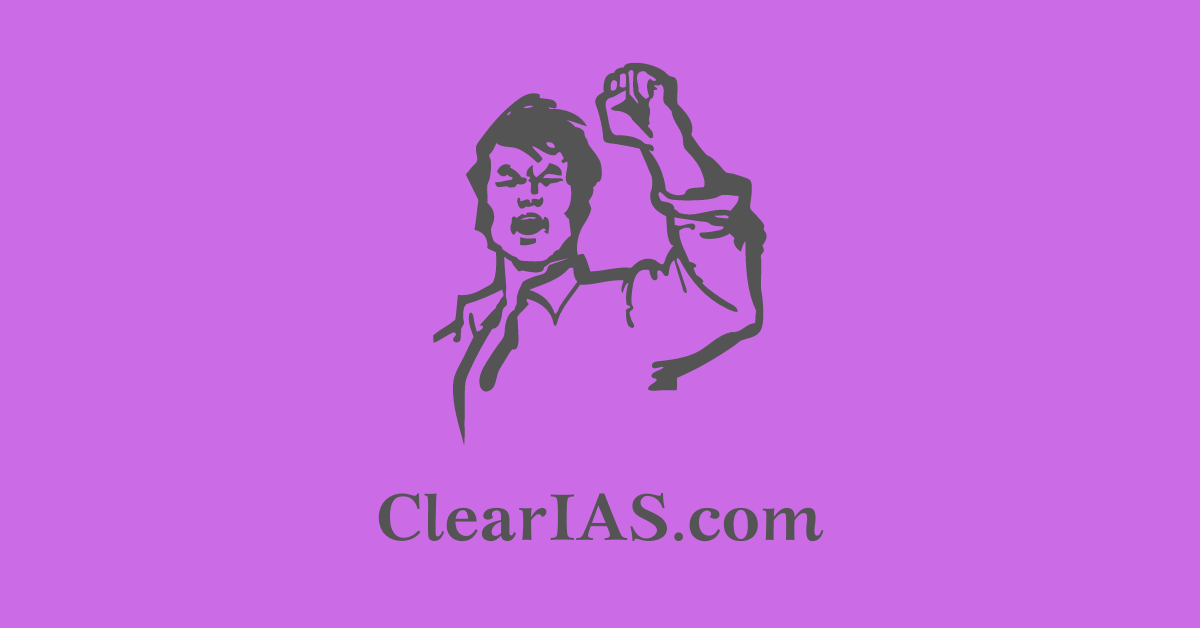 What are the factors responsible for communal violence? When were the seeds of communal violence first sown in India? To answer all these questions, read further.
What are the factors responsible for communal violence? When were the seeds of communal violence first sown in India? To answer all these questions, read further.
Historical background
The seeds of the present communal violence were sown in the aftermath of the freedom struggle and the partition. The partition of Bengal on the communal lines by Lord Curzon in 1905 can be considered an attempt by the British to communalize Indian society and the political structure.
The formation of the Muslim League in 1906
the introduction of the separate electorate on communal lines in 1909 through the Minto Morley reforms
The creation of Hindu Mahasabha in 1915 was believed to be the beginning of modern-day communalism in India.
Factors Responsible For Communal Violence
- Historical factors-The history of partition and the two-nation theory generated a deep sense of communalism and mistrust among communities
- Political factors-The divide and rule policy practiced by the British and the subsequent identity politics followed by the political parties have added to the divide.
- Educational factors-Majority of Indians have failed to adopt a scientific and technological approach and hence are reluctant to adopt liberal values
- Socio-economic factors-The educational backwardness has resulted in poor representation of Muslims in public services. This relative sense of deprivation contains the seeds of communalism
- Cultural factors-Orthodox members of communities have strong elements of conservatism and fundamentalism.
- Social media-Hate campaigns and fake news plays a vital role in spreading communal riots and tensions
- Lack of strong action-Lack of strong decisive action by police and allegations of biased or delayed action are also a cause.
Precipitating factor for communal violence
The following are the immediate factors why communal riots flare up
- Gender offences-Offences like sexual harassment, rape, and elopement with girls/boys of other communities. Hindu organizations attribute such elopement as part of a conspiracy namely ‘love Jihad’.
- Land disputes-disputes regarding the construction of new places of worship, and unauthorized construction are all factors flaring disputes
- Religious festivals-Celebrations of Holi, Eid, etc often result in local disputes that have the potential to flare up.
Constitutional Provisions
- The preamble-Preamble of the Indian Constitution declares it as a secular state and secures the liberty of thought expression, belief faith, and worship.
- Article 25-All persons are equally entitled to freedom of conscience and the right to freely profess, practice, and propagate religion subject to public order, morality, and health.
- Article 26-Says that all denominations can manage their own affairs in matters of religion.
- Article 29-Mandates that no discrimination would be done on the ground of religion, race, caste, language, or any of them.
- Article 30-Mandates that all minorities, whether based on religion or language, shall have the right to establish and administer educational institutions of their choice.
- Fundamental duty – Art 51A- Promote harmony and the spirit of common brotherhood amongst all the people of India transcending religious, linguistic, and regional or sectional diversities and to renounce practices derogatory to the dignity of women.
Legal Provisions
- Various provisions of the Indian penal code deals with the issues of communalism in the country, like section 153A, 153B
- The communal Violence (Prevention, Control, and Rehabilitation of Victims) Bill, 2005 must be enacted soon.
- Manipur government came up first with its Law against lynching in 2018.
Measures to counter communal violence
- Impartial administration and police-The directives of police reforms by the Supreme Court should be adopted by the state government in letter and spirit. Fixed tenure of District Magistrate/ Deputy Commissioner and Superintendent of police will make a big difference.
- Peace committees-Peace committees should be made mandatory in every area. Secular and visionary people of the area should be made part of it.
- Win people’s hearts and minds through media-The faith of common people in the local police should be restored with the help of civil society, NGOs, and media.
- Holistic development of minority communities-A sincere effort to ensure that employment and skill development opportunities are available in the economic, educational, and social spheres for minority communities.
- Manpower shortage issue in a police-The number of policemen per one lakh people in India is only 130. The minimum United Nations norm is 220. The gap should be immediately filled.
- Capacity building of police and implementation of police reforms
- Preventing community-based Ghettos in Urban areas.
- Formulation of counter radicalisation and de-radicalisation policies.
Conclusion
Communal violence and tensions seriously hamper national integrity. The secular ideals of the constitution should be upheld at all times of crisis.






Leave a Reply